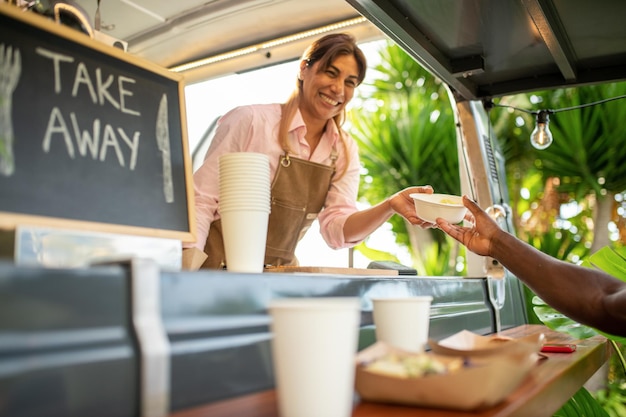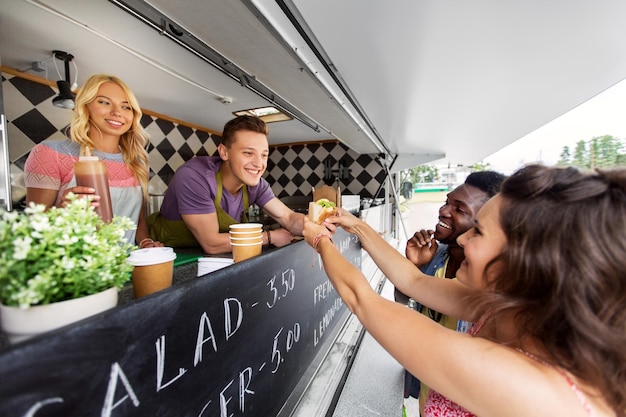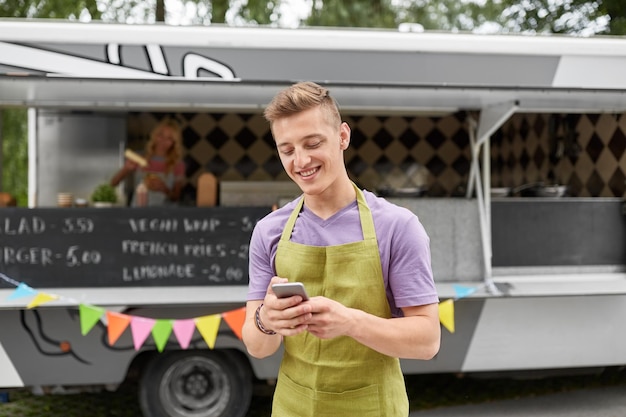Hey, I’m Mack, and if you’re reading this, you’re probably thinking about starting a food truck. First off—congrats! You’re about to embark on one of the most exciting, challenging, and rewarding journeys out there. I’ve been where you are, full of questions, excitement, and maybe a little nervousness. So, let’s break it all down in simple terms, from someone who’s been in the trenches.
Why Start a Food Truck?

Food trucks have exploded in popularity over the past decade, and for good reason. They offer the flexibility to be your own boss, the freedom to craft a unique menu, and the ability to bring great food directly to your community. Plus, compared to opening a brick-and-mortar restaurant, the startup costs are much more manageable. But, like any business, there are a few things to figure out before you hit the road.
Common Concerns When Starting a Food Truck
If you’re like most people, you’re asking yourself questions like:
- How much does a food truck cost?
- What permits do I need?
- How do I stand out in a crowded market?
- What kind of food should I sell?
These are all valid concerns, and trust me, I had the same thoughts when I was starting my food truck journey. Let’s dive into each one so you can get a clearer picture of how to launch your dream business.
1. How Much Does It Cost to Start a Food Truck?
Starting a food truck can cost anywhere from $50,000 to $150,000. This range depends on whether you’re buying a brand-new truck, outfitting a used one, or renting a truck to test the waters.
Here’s a basic breakdown of the costs:
- Truck or Trailer: $20,000 – $100,000 (depending on condition and customization)
- Permits and Licenses: $500 – $5,000 (varies by location)
- Equipment: $10,000 – $30,000 (stoves, fridges, etc.)
- Initial Inventory: $1,000 – $2,000 (food, supplies, packaging)
- Marketing & Branding: $500 – $3,000 (logo, website, social media)
The key is to budget carefully and prioritize your spending. Don’t skimp on the essentials, but also don’t feel like you need to go all out on day one.
Quick Tip:
Start with a used truck if you’re on a tight budget. You can always upgrade later once your business starts gaining momentum.
2. What Permits and Licenses Do You Need?
Getting your paperwork in order is one of the trickiest parts of starting a food truck, but it’s crucial to get it right. You’ll need:
- Business License: Every food truck needs one to operate legally.
- Health Department Permit: Your truck will need to pass health inspections.
- Fire Safety Permit: Since your truck will have cooking equipment, this is essential.
- Parking Permit: Depending on your city, you might need a permit to park and operate in certain areas.
Each city and state has its own regulations, so make sure to check with your local authorities. It may seem like a lot, but once it’s done, it’s done!
3. How to Stand Out in a Crowded Market
This is where things get fun. There are thousands of food trucks out there, but only one you. Your personality, your unique menu, and your branding are what will make you stand out.
- Nail Your Concept: Think about what makes your food truck unique. Are you doing gourmet grilled cheese? Vegan tacos? Korean BBQ? Focus on a specialty and do it really well.
- Build a Strong Brand: Create a memorable name, logo, and design for your truck. This helps people remember you and find you easier on social media.
- Engage on Social Media: Instagram and Facebook are your best friends. Post mouth-watering photos, share your truck’s location, and engage with your customers. Encourage people to tag you in their posts!
Quick Tip:
Offer something no one else does. Whether it’s a unique dish, a cool truck design, or a fun customer experience, give people a reason to choose you over the competition.
4. What Kind of Food Should You Serve?

This is probably the most personal part of the process. It’s your food, your passion, and it should reflect that. But here are a few things to consider when deciding on your menu:
- Keep It Simple: You don’t need a 20-item menu. Focus on a few signature dishes that you can execute perfectly every time.
- Think About Prep Time: You’ll be working in a small space, so choose dishes that are easy to prep and don’t take forever to cook.
- Cater to Your Audience: Think about the crowd you’ll be serving. Are you parking near an office building during lunch? A popular nightlife spot on weekends? Tailor your menu to what people in your area want.
My Personal Story: How I Started My Food Truck
When I first thought about starting a food truck, I was overwhelmed. I didn’t have a ton of money, and I had no clue how to run a business. But I loved cooking, and I knew I had something special to share.
I started small, with a used truck and just a few menu items. I focused on building relationships with my customers, keeping my food simple but high-quality, and staying consistent with my brand. Was it easy? No. Was it worth it? Absolutely.
Today, my food truck is thriving, and I’ve even expanded to catering events and festivals. If I can do it, so can you.
Final Thoughts: Ready to Start?
Starting a food truck isn’t easy, but it’s incredibly rewarding. You get to share your passion with the world, meet amazing people, and be your own boss. If you’re ready to take the leap, do your research, plan carefully, and most importantly—believe in yourself.
If you’ve got questions, drop them in the comments below! I’d love to help you out. And if you found this guide helpful, feel free to share it with anyone else who’s thinking about starting a food truck.
Good luck, and I’ll see you on the road!

